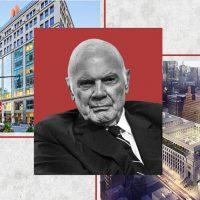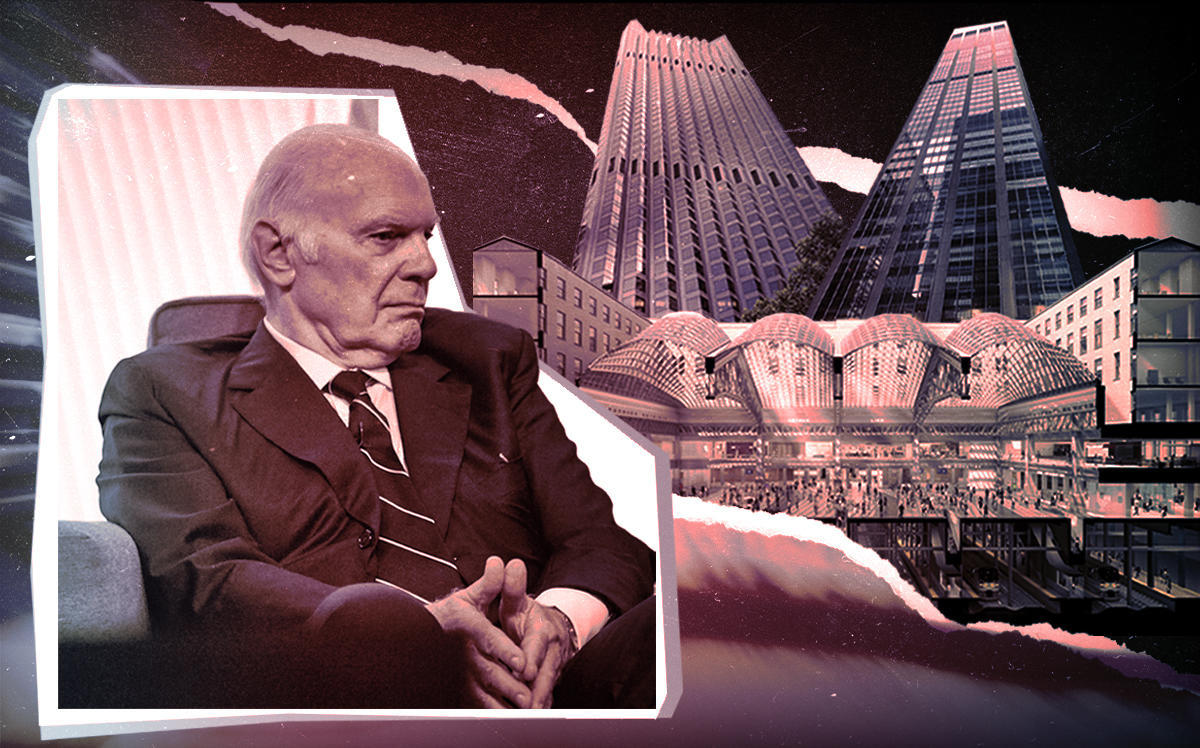As the possibility of a Democratic sweep fades, Steve Roth says his biggest concern now is “stupid legislation.”
The Vornado Realty Trust CEO fielded a question on the presidential election during the company’s third-quarter earnings call Wednesday, with the race still too close to call.
“That’s a big question which probably, if I were smarter than I am, I would duck. But I’ll tell you what I think,” said Roth, who has donated $300,000 to Trump and Republican groups since 2019. “This election is historic and we can’t predict what’s going to happen, but I think pretty clearly the sweep is off the table, and from my point of view, and probably from most folks’ point of view, that’s a very very good thing.”
He went on to note that a Biden presidency would likely change the dynamic in Congress with regard to another stimulus package, including the question of federal support for big cities like New York which are facing massive budget deficits.
“The promises that the Democratic side made that they would reverse the Trump tax plan, that they would reverse the SALT [deduction cap] — I see that as being a very hard lift,” Roth said. “The thing that I worry about most is stupid legislation, such as what happened in Albany last year with residential assets, and unsustainable tax increases.”
For now, the real estate investment trust is still dealing with the pandemic’s impact on the real estate market. As the company disclosed two weeks ago, it saw a $103 million impairment loss on its prime retail joint venture in Manhattan. However, it saw a $187 million net gain from sales at 220 Central Park South.
Vornado recorded net income of $53 million for the quarter, or $0.28 per share, a turnaround from the prior quarter’s $198 million net loss.
The company’s rent collections rose to 93 percent in the quarter, up from 88 percent in Q2. This was driven by an uptick in retail rent collection in particular, which rose to 80 percent from 72 percent.
Read more


The firm is now hoping for a return to normalcy “in a matter of months, not years,” or towards the latter end of 2021. In a reflection of those expectations, Vornado recently moved to postpone one of its major trade shows at theMART in Chicago, interior design exposition NeoCon, from June to October.
Unlike many of its competitors, which have returned all their employees to the office, Vornado has split employees into two teams that go to the office on a rotating basis to keep density down, Roth said.
“Out of respect for our employees, we have basically said that if you are uncomfortable with the health risk of returning to the normal office environment, then by all means please continue to work from home,” Roth said. “Now, we’re not going to let that go on forever.”
He added that most tenant CEOs are taking a similar approach — which makes a full return to the office unlikely before a vaccine is widely available. While “everybody is champing at the bit” to return to work, school, restaurants and normalcy in general, he said, “it’s very difficult to say ‘well, there is no health risk, don’t worry about it,’ because it’s so prevalent.”
Meanwhile, the company has continued to make progress with its developments in the Penn District, with Moynihan Train Hall set to open to the public in a matter of weeks. And despite near-term headwinds, Roth maintained that Vornado’s retail space at the Farley building boasts an unrivaled location.
“I’ve nicknamed this project ‘the Funnel,’ because really what happens is that all of the population of Hudson Yards and Manhattan West, which are huge developments with huge office populations, have to funnel through this retail corridor to get to the subways and trains,” he said. “It’s the single best retail opportunity in the city right now by a factor of two or three, and the retailers understand that.”
While leasing activity has remained slow — exceptions like Facebook’s big lease at the Farley building notwithstanding — Vornado has been able to secure a string of refinancings thanks to favorable capital market conditions and low interest rates. The company recently landed a $500 million refinancing for 11 Penn Plaza and a $94 million financing at the Alexander in Rego Park, and amended and extended several other loans.
“Financing markets for office are now wide open, with capital available at record-low rates for high-quality, well-leased buildings and strong sponsors,” said president Michael Franco. “The market will only become more attractive over the next 12 to 18 months as lenders become more active and compete for business.”
At the same time, the REIT is still working to recapitalize the two office buildings it co-owns with President Trump, either through a sale, joint venture, or refinancing. “There is active interest from investors and widespread appreciation for the quality of these assets, but given investor caution, it does not look like we are going to achieve our original top-tick pricing objective,” Roth said.
“The liquifying of the value of those assets is an important thing in our future planning,” he added later.
Weakness in pricing could also work in Vornado’s favor in other situations, as the company reiterated its intention to seek out distressed assets when the opportunity arises — most likely well into next year.
“The law of the jungle is that the bigger they are, the harder they fall,” Roth said. “The top three categories of assets that are in distress are condos in New York, retail anywhere, and hotels.”
